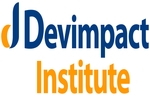|
|
Training on Warehouse and Stores Management
USD 950 |
Venue: Nairobi, Kenya
Effective warehouse and store management is essential to the success of today’s organization. To accurately satisfy consumer requests, the product must move through the supply chain in a timely, efficient, and cost-controlled manner. Most organizations today recognize that a warehouse is an essential component of the entire supply chain rather than just a “place to put goods.” The many aspects of the business, including production, product, suppliers, customers, and the associated product throughputs and volumes, are examined in this highly interactive warehouse and store management training course. The participants will learn how to use all the necessary tools for the efficient operation of warehouses and stores.
Target Participants
This course is ideal for inventory, stock, supply chain, logistics, warehouse and distribution professionals, project managers, finance staff, operational staff, government officials, and any other professionals who want to build their skills in supply chain management.
Course Duration
Online 7 Days
Classroom-based 5 Days
What you will learn
By the end of this course the participants will be able to:
- Understand the role and importance of a warehouse in the supply chain.
- Manage the day-to-day operations of a warehouse.
- Identify and understand key performance indicators.
- Make important decisions regarding the location, size, and layout of a warehouse.
Course Outline
The Role of the Warehouse
- Why do we need a warehouse?
- Functions of the warehouse
- How do stores and warehouses fit into the supply chain?
- The balance between sorting and storing.
- The location and capacity of other warehouses
Product Classification
- Supply/demand variables
- ABC analysis or the 80/20 rule.
- Determining product handling groups
- Throughputs and product formats
Layout Options
- Receiving options
- Storage options
- Picking /assembly options
- Dispatching options
- Using the floor and the height space
- Organizing for flow
Methods and Equipment
- Loading bays
- Selecting forklift trucks
- Selecting racking
- Implications for warehouse layouts
- Operational timings and planning
- The use of IT within the warehouse
Health and Safety
- Duty of care
- Inspections and risk assessment analysis
- Equipment maintenance and care
- Raising people’s awareness
Security and Loss
- Minimizing internal theft
- Minimizing external theft
- Preventative measures
Productivity and Costs
- Fixed and variable costs
- Typical costs involved.
- Model for understanding the roles of productivity, utilization, and performance.
- Setting productivity and cost targets
- The importance of having measurements and key indications of performance
Service Levels
- Internal and external customers
- Customer service measure
- Customer service sampling
- Effects of substandard service
- Minimizing errors
Warehouse Layouts and Productivity
- Different types of layouts with advantages and disadvantages
- Planning for flow in the warehouse
- Calculations for storage
- Calculations for throughput and productivity
Training Approach
This course is delivered by our seasoned trainers who have vast experience as expert professionals in their respective fields of practice. The course is taught through a mix of practical activities, theory, group works, and case studies.
Training manuals and additional reference materials are provided to the participants.
Certification
Upon successful completion of this course, participants will be issued a certificate.
Tailor-Made Course
We can also do this as a tailor-made course to meet organization-wide training needs. A training needs assessment will be done on the training participants to collect data on the existing skills, knowledge gaps, training expectations, and tailor-made needs.
| Nairobi, Kenya | Dec 09 - 13 Dec, 2024 |
Registration: 08:00:am - 04:00:am
| USD 950.00 + 47.50 (VAT) | (Classroom-based) |
| USD 600.00 + 30.00 (VAT) | (Online) |
Devimpact Institute +254714349537
Related Courses
 Training on Public Financial Management and Administration
Training on Public Financial Management and Administration
5 days, 06 - 10 Jan, 2025
Devimpact Institute



